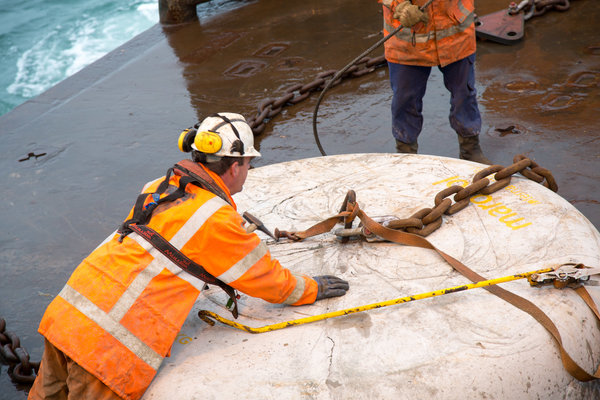On our way to the anchor of the future!
2021-05-28
 Since 2019, the AFAS Foundation joint forces with North Sea Farmers on our eco-anchor project. Now, two years into the project, it is time for the next phase. Learn more about the innovative Eco-anchor and how it can contribute to postive impact.
Since 2019, the AFAS Foundation joint forces with North Sea Farmers on our eco-anchor project. Now, two years into the project, it is time for the next phase. Learn more about the innovative Eco-anchor and how it can contribute to postive impact.
Building block of the future seaweed farm
To be able to realise a susutainable ocean seaweed farm, there is a need for a nature inclusive under-water infrastructurewhich can withstandoffshore conditions. Such an anchoring system is an essential part of the sea farm. By joining forces with the AFAS Foundation, the North Sea Farmers are able to design, develop and test this building block of the future seaweed farm: the eco-anchor. A sustainable and nature friendly anchoring system that improves biodiversity in the sea.
Different phases
Since the start of the collaboration with the AFAS foundation, the project delivered different results. In phase 1 of the project, we focussed on the feasibility and design of the eco-anchor. By engaging with different stakeholders, the needs and boundary conditions of such an eco-anchor were outlined. Based on the input of the stakeholders, together with our technical expertise the concept design was realised. The concept design of the eco-anchor is now ready.
What is next?
In 2021, the eco-anchor will move into the second phase: taking the design of the anchor to the next level, testing it, and raising awareness on the importance of nature inclusive seaweed farming.
In the coming year, the prototype will be tested in an offshore environment. It is crucial to see how such an anchor will perform in offshore conditions, as these conditions are harsh: waves and current can be of great influence of the durability of the anchor. Next to that the test will give representative insights on how marine life will interact with the anchor. One of the core conditions for a successful anchor is the improvement of biodiversity, thus we are excited to see the first results.
Partnership with AFAS Foundation
Realising a new sector takes time and requires new innovations. However, time is running out when it comes to the climate changing, fresh water reserves decreasing and farmable land deminishing. The collaboration with the AFAS Foundation helps to accelerate the process of realising an eco-anchor for the seaweed sector.
Do you want to know more, or would you like to contribute to the development of the eco-anchor, please get in touch with Zinzi
Seaweed, an all-rounder!
Seaweed is a diverse crop that has many advantages over landbased crops. Seaweed can be cultivated at sea, reducing pressure on farmland. Moreover, seaweed does not need fresh water to be produced but grows in the salt environment of our oceans. Seaweed can be used in many different applications, ranging from food to cosmetics. As a foodsource, seaweed is rich in protein and has the potential to be alternative protein source for meat. All-in-all seaweed has is the future, but the seaweed sector still has steps to take.
The time is now; European seaweed
Although we know seaweed is a wonder-crop for a long time now, not everyone was as convinced as we were. However, the current European and Dutch policy documents are outlining the potential for the European sector. With the publication of the Green Deal, the North Sea Agreement (NL) and the Marine Spatial Plan (BE), times and opinions are changing in favour of seaweed. These policy documents promote multi-use at the sea; aquaculture within offshore windparks. With the shift towards a sustainable future, the energy transition can be combined with the production of sustainable food in the oceans.
160 ha North Sea seaweed farm
In 2021, North Sea Farmers is building a large consortium of organisations and businesses that will allow the first large-scale seaweed farm to be build in the North Sea, within an offshore windpark. By 2023, we aim to realise this 160ha offshore seaweed farm.


